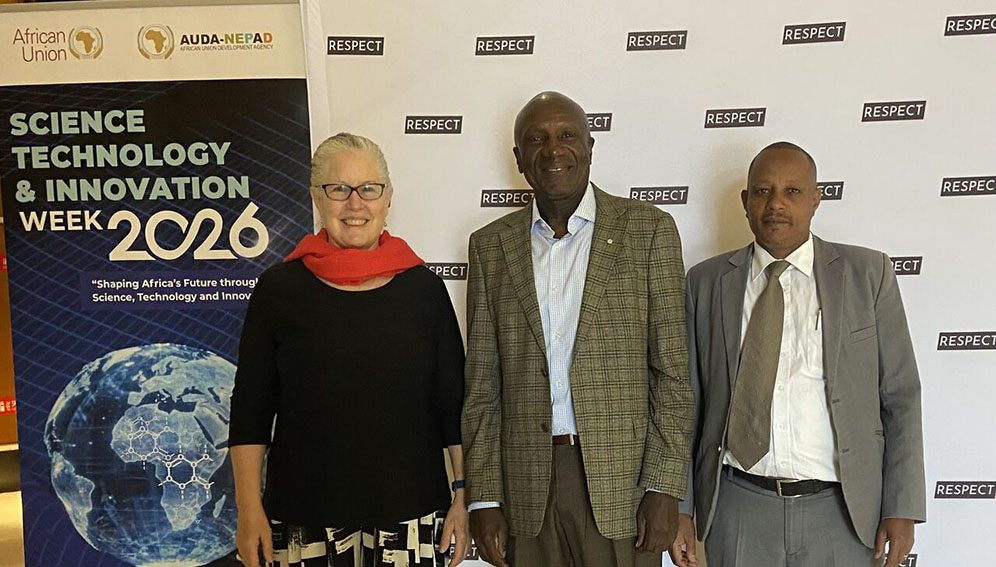SGCI News
The Science Granting Councils Initiative (SGCI) in partnership with the National Research Foundation, South Africa, and the German Research Foundation (DFG), hosted a peer learning visit in Bonn, Germany. The…
The Science Granting Councils Initiative (SGCI) in partnership with the National Research Foundation, South Africa, and the German Research Foundation (DFG), hosted a peer learning visit in Bonn, Germany.
The event was held from 8 April to 10 April. SGCI funding partners, collaborating technical agencies, and public funders from 13 countries across Africa were in attendance.
The bi-annual meeting is an opportunity for researchers to share experiences and practices linked to science, research, and grants management and connect peers within funding agencies for long-term professional relationship building and stimulate the development of communities of practice in the SGCI.
The goal is to strengthen research and grant management systems across the African continent to ensure that they are more inclusive, responsive, and well-aligned.
Impactful change
The networking event has helped council members over the years to share insights, build connections that have helped bring ideas to reality, and improve the lives of people and communities.
The collaboration between the DFG and NRF dates back to 2019, in a long-standing bilateral relationship and a mutual commitment to strengthening research management across Africa through SGCI.
Improving research systems
During this year’s meeting, discussions focused on equality, diversity, and inclusion in research, research infrastructure, impact, enabling curiosity-driven research, and stewarding research partnerships.
It empasised how improving research systems is about people and how peer learning can help researchers better understand and address the specific challenges and opportunities within their regions and communities.
Collaborative solutions
By working together and sharing their experiences, researchers can develop more effective solutions to complex and critical problems in Africa like climate change, infectious diseases, genetic diversity, antimicrobial resistance, health equity, AI in healthcare, and science communication.
The NRF was represented by Dr. Dorothy Ngila, Ms Puleng Tshitlho, and Mr Themba Ngomane, who contributed actively to the discussions and knowledge sharing throughout the visit.
Please check out the stories and let us know what you think. We would love to hear from you!
Let’s continue the conversation on our social media
Follow us on LinkedIn – https://www.linkedin.com/company/science-granting-councils-initiative/
Related News
Building Africa’s science future: inside the SGCI alliance
As Phase 3 of the Science Granting Councils Initiative launches on the margins of the African Union Summit in Addis Ababa last week, the SGCI Alliance Chair explains why this moment marks a decisive turning point for African science. Cephas Adjei Mensah describes what is…
Open call: Support for science granting councils in Sub-Saharan Africa
The International Development Research Centre (IDRC), through the Science Granting Councils Initiative (SGCI), has launched a call for proposals to support science granting councils in Sub-Saharan Africa in the establishment and operationalisation of the Capacity Strengthening Hub under Phase III of the SGCI-3. The Hub…
SGCI phase 3: USD 42M boost for Africa’s STI agenda
It was an exhilarating moment as the Science Granting Councils Initiative (SGCI) Phase 3 funding announcement was officially made yesterday during the Science, Technology, and Innovation (STI) Week 2026, held in Addis Ababa, Ethiopia. The STI Week, organised by AUDA-NEPAD and the African Union and…
SGCI funded projects
Rwanda’s integrated approach to sustainable agriculture and nutrition
Project Titles & Institution Areas of Research Number of Projects being funded Project Duration Grant Amount In-Kind Distribution Council Collaboration with other councils





